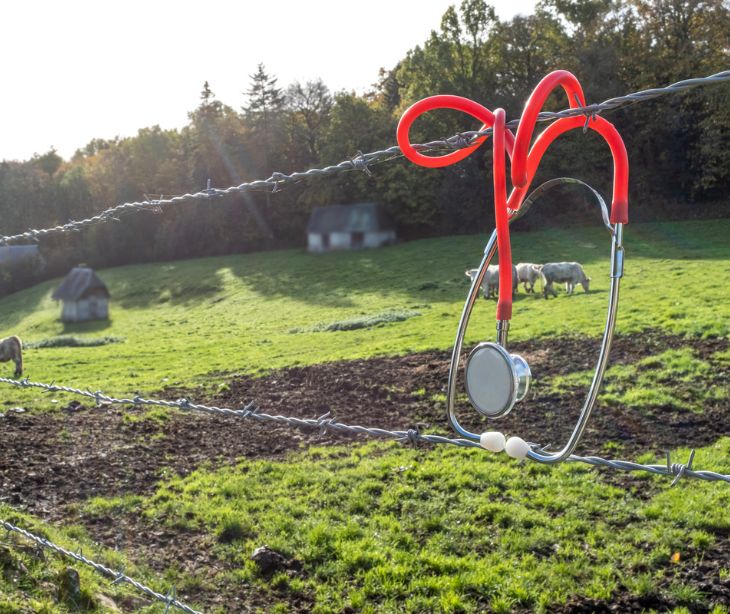
Healthcare providers have legal and ethical obligations to protect patient data, but practices in rural areas face many challenges.
Best practices for rural clinics to protect patient data
1. Telecommunications infrastructure
Assess the telecommunications infrastructure in the rural area and ensure that it is secure and reliable. Collaborate with local Internet service providers to establish secure connections and reliable data transmission, especially for telemedicine services or data exchange with other healthcare providers.
2. Physical security
Pay close attention to physical security measures, considering the unique challenges of the area in which the practice operates. Implement secure locks, alarm systems, video surveillance, and restricted access to facilities to prevent unauthorized physical access to patient data.
3. Staff training on rural-specific risks
Provide staff members with training specifically addressing the unique risks faced by rural practices. This may include educating them about threats like limited resources, reliance on remote access, and maintaining patient privacy within close-knit communities.
4. Data backup and redundancy
Establish reliable and redundant data backup systems to protect against infrastructure failures, power outages, or natural disasters. In areas where infrastructure may be less reliable, consider alternative backup options such as offline storage, physical backup copies of patient data, or, if possible, periodic data synchronization with off-site facilities.
5. Local collaboration and support
Establish partnerships and collaborate with local organizations, such as regional hospitals, healthcare networks, or public health agencies. This collaboration can provide access to shared resources, expertise, and support for data security initiatives.
6. Community education and awareness
Engage in community education and awareness campaigns to inform patients about the necessity for data privacy and security. Empower them to be proactive in protecting their own information and encourage them to report any suspicious activities or breaches.
7. Engage local IT support
Establish relationships with local IT support services. These professionals can assist with implementing and maintaining security measures relating to cybersecurity.
Related: HIPAA compliant file storage
Securely transferring patient data
In rural practices and clinics, ensuring the secure transfer of patient data between different systems or healthcare providers can be achieved through various tailored methods. Firstly, utilizing secure virtual private networks (VPNs) or encrypted communication channels is necessary in areas with limited telecommunications infrastructure. Additionally, for seamless communication, using HIPAA compliant email can help protect patient information while ensuring compliance with privacy regulations.
Backup and disaster recovery measures
A rural practice or clinic should have backup and disaster recovery measures to protect patient data in case of unforeseen events or system failures. Regular and automated backups of all patient data should be performed, with multiple copies stored securely on-site and off-site to ensure data redundancy.
A well-defined disaster recovery plan should also be established, outlining detailed steps and procedures for system restoration and data recovery. This plan should include prioritizing critical systems, identifying alternate infrastructure options, and establishing communication protocols to keep patients, staff, and stakeholders informed during recovery.
Resources to assist with data security in rural clinics and practices
- The Office for Civil Rights (OCR): The OCR is the division of the U.S. Department of Health and Human Services (HHS) responsible for enforcing HIPAA regulations. Their website provides extensive information, guidelines, and resources tailored to healthcare providers, including rural practices, to help them understand and comply with HIPAA requirements.
- Regional extension centers (RECs): RECs are organizations funded by the HHS that provide technical assistance, education, and support to healthcare providers, including rural practices, for adopting and implementing health information technology (HIT) securely. They offer guidance on data security, risk assessments, and strategies for protecting patient data.
- State and regional health information exchanges (HIEs): Many states have established HIEs to facilitate the secure exchange of health information among healthcare providers. These HIEs often offer resources, guidelines, and technical assistance to help rural practices implement secure data-sharing practices and protect patient information.
- Health information technology regional extension centers (HITRECs): HITRECs assist healthcare providers, including rural practices, in adopting and effectively using HIT systems while ensuring data security and privacy. They offer training, guidance, and resources for HIT implementation and data protection.
- The National Institute of Standards and Technology (NIST): NIST provides cybersecurity frameworks, guidelines, and standards that can help rural practices establish strong data security measures. They offer resources such as the NIST Cybersecurity Framework, which provides a risk-based approach to managing and securing data.
- Professional associations and organizations: Various professional associations and organizations focused on healthcare, such as the American Medical Association (AMA), American Health Information Management Association (AHIMA), and American Academy of Family Physicians (AAFP), provide resources, webinars, and training materials on data security and privacy best practices for rural practices.
Related: Data breach practices for rural healthcare facilities
Subscribe to Paubox Weekly
Every Friday we'll bring you the most important news from Paubox. Our aim is to make you smarter, faster.




